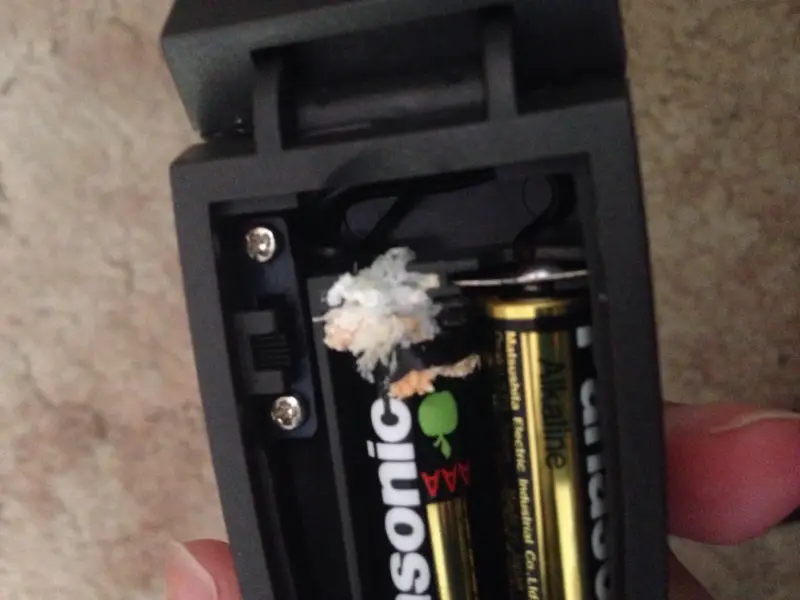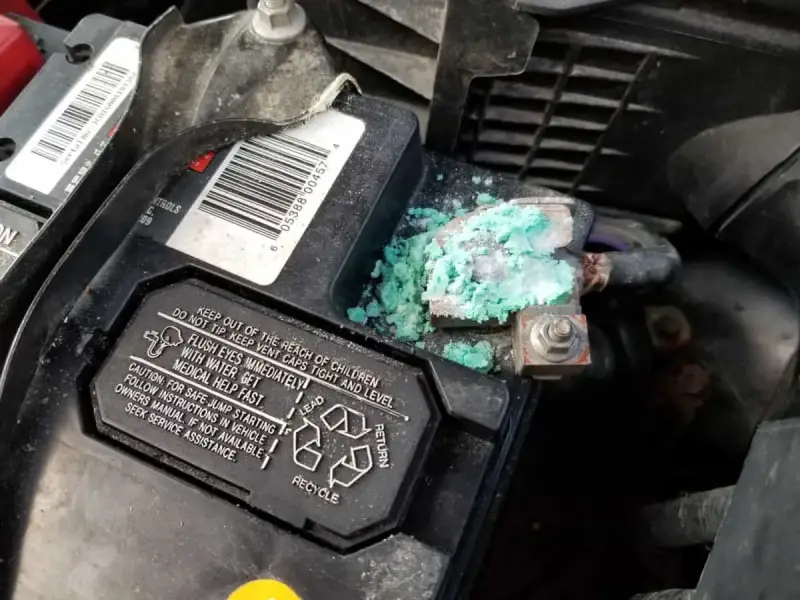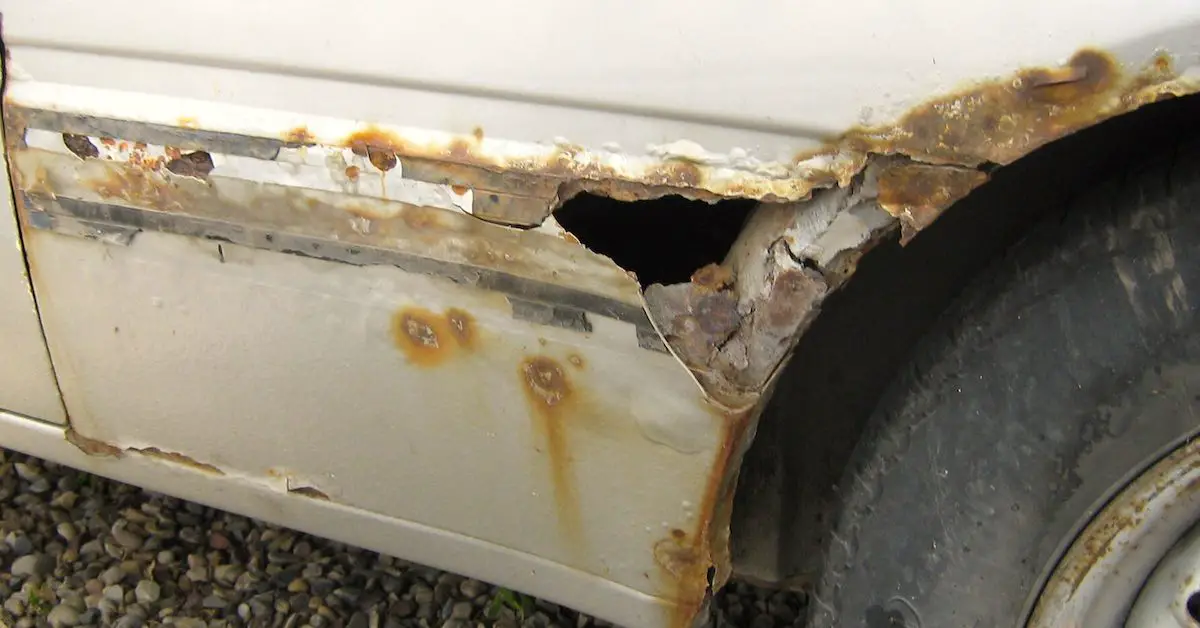Battery corrosion is a common issue that affects many types of batteries, from car batteries to laptop batteries and beyond. When batteries corrode, a white or greenish powdery substance builds up on the terminals, which can cause a number of problems, including decreased battery performance and, in some cases, even damage to the battery itself. But just how dangerous is battery corrosion, really?
In this blog post, we’ll explore the dangers of battery corrosion in detail, and look at the various ways in which it can impact the performance and longevity of your batteries. We’ll also look at some common causes of battery corrosion, and offer some tips on how to prevent and treat it. Whether you’re a car owner looking to extend the life of your vehicle’s battery, or a laptop user concerned about the impact of battery corrosion on your device, this post has everything you need to know. So, what are you waiting for? Let’s dive in and take a closer look at the dangers of battery corrosion!
Is Battery Corrosion Dangerous Overview
Battery corrosion can be a real pain and a serious threat to the longevity and performance of your batteries. It’s that white or greenish powdery substance that builds up on the terminals, and it’s a tell-tale sign of a battery that’s on its way out. But despite its unsightly appearance, battery corrosion can actually be quite dangerous!
It can lead to decreased power output and reduced battery life, which can be a real hassle, especially if you’re relying on your battery to get you from point A to point B, or to power important devices like laptops. In some cases, the corrosion can even cause permanent damage to the battery, rendering it completely useless. That’s why it’s so important to take steps to prevent and treat battery corrosion whenever possible.
Thankfully, there are plenty of products and methods available to help you keep your batteries in tip-top shape. From specialized battery terminals and corrosion inhibitors, to simple home remedies like baking soda and vinegar, there are a variety of ways to prevent and treat battery corrosion. I’ve tried a lot of these products and methods over the years, and I have to say, I’m really impressed with the results. Whether you’re a car owner, a laptop user, or just someone who wants to keep their batteries in good condition, there’s sure to be a solution that works for you. So why not give it a try? You might just be surprised at the difference it can make!
Is Battery Corrosion Dangerous – Methods in Comparison
Battery corrosion is a common problem that affects many types of batteries, and can lead to decreased battery performance, reduced battery life, and in some cases, permanent damage to the battery. It’s important to take steps to prevent and treat battery corrosion in order to protect your batteries and keep them in good working order.
The Problem of Battery Corrosion Battery corrosion is caused by a build-up of sulfates on the terminals of a battery, which can form as a result of the chemical reaction that takes place during normal battery operation. The build-up of sulfates can interfere with the flow of electrical current, leading to decreased battery performance and reduced battery life. In some cases, the sulfates can also cause physical damage to the battery, making it difficult or impossible to use.
Methods for Solving Battery Corrosion There are several methods available for solving battery corrosion, each with its own pros and cons. Some of the most popular methods include:
- Battery Terminal Protectors: Battery terminal protectors are specialized products that are designed to prevent battery corrosion by forming a barrier between the battery terminals and the sulfates that cause the corrosion. These protectors are easy to install and can be effective at preventing battery corrosion, but they may need to be replaced periodically.
- Corrosion Inhibitors: Corrosion inhibitors are chemical solutions that are added to the battery to prevent the build-up of sulfates. These inhibitors are effective at preventing battery corrosion, but they may need to be reapplied periodically, and some types of inhibitors can be harmful to the environment.
- Baking Soda and Vinegar: Baking soda and vinegar are commonly used household items that can be used to clean battery terminals and remove sulfates. This method is effective, inexpensive, and environmentally friendly, but it may require some time and effort to clean all of the sulfates from the terminals.
- Sandpaper or Steel Wool: Sandpaper or steel wool can be used to physically remove sulfates from the battery terminals. This method is effective, but it can be time-consuming and may cause physical damage to the terminals if not used carefully.
| Method | Pros | Cons |
|---|---|---|
| Battery Terminal Protectors | Easy to install, effective at preventing corrosion | May need to be replaced periodically |
| Corrosion Inhibitors | Effective at preventing corrosion | May need to be reapplied periodically, can be harmful to the environment |
| Baking Soda and Vinegar | Effective, inexpensive, environmentally friendly | May require time and effort, not as effective as specialized products |
| Sandpaper or Steel Wool | Effective | Time-consuming, can cause physical damage if not used carefully |
Conclusion Battery corrosion is a common problem that can impact the performance and longevity of your batteries. By taking steps to prevent and treat battery corrosion, you can protect your batteries and keep them in good working order. The methods available for solving battery corrosion include battery terminal protectors, corrosion inhibitors, baking soda and vinegar, and sandpaper or steel wool. Each method has its own pros and cons, so it’s important to consider your individual needs and preferences when choosing a method for solving battery corrosion.

Equipment To Work With Is Battery Corrosion Dangerous
| Equipment | Description |
|---|---|
| Safety Gloves | To protect your hands from chemicals and physical abrasions |
| Safety Glasses | To protect your eyes from splashes and debris |
| Wire Brush or Steel Wool | To physically remove sulfates from battery terminals |
| Baking Soda | A common household item used to clean battery terminals |
| Vinegar | A common household item used to clean battery terminals |
| Corrosion Inhibitor Solution | A specialized solution used to prevent battery corrosion |
| Battery Terminal Protectors | Specialized products designed to prevent battery corrosion |
| Sandpaper | To remove sulfates from battery terminals |
| Multimeter | To measure the electrical current and voltage of the battery |
Note: When working with batteries, it’s important to take safety precautions and follow proper safety protocols, as batteries can be hazardous. Make sure to wear the appropriate safety equipment and take any other necessary precautions.
Step-by-Step Instruction On Is Battery Corrosion Dangerous
- Gather the necessary equipment: Before you start, make sure you have all of the equipment you’ll need. You will need safety gloves, safety glasses, a wire brush or steel wool, baking soda, vinegar, a corrosion inhibitor solution (optional), battery terminal protectors (optional), sandpaper (optional), and a multimeter.
- Turn off the battery: Before you begin working on the battery, make sure it’s turned off to avoid electrical shock or injury.
- Put on safety equipment: Put on safety gloves and safety glasses to protect your hands and eyes.
- Locate the corrosion: Visually inspect the battery terminals and look for any signs of corrosion, such as white or green powdery buildup.
- Clean the terminals: Use a wire brush or steel wool to remove as much of the corrosion as possible. You can also use baking soda and vinegar to clean the terminals by making a paste with equal parts baking soda and vinegar, and then applying the paste to the terminals. Let the paste sit for a few minutes, and then use the wire brush or steel wool to scrub the terminals.
- Apply a corrosion inhibitor: If desired, you can apply a corrosion inhibitor solution to the battery terminals to prevent future corrosion.
- Install battery terminal protectors: If desired, you can install battery terminal protectors to prevent future corrosion.
- Test the battery: Use a multimeter to test the electrical current and voltage of the battery. If the readings are low, it may be necessary to replace the battery.
- Reassemble the battery: If everything looks good, reassemble the battery and turn it back on.
- Monitor the battery: Regularly monitor the battery for any signs of corrosion and repeat the process as necessary to keep the terminals clean and free of sulfates.
By following these steps, you should be able to effectively clean the battery terminals and prevent future corrosion. If you’re unsure about any aspect of the process, consult a professional or seek advice from a knowledgeable source before proceeding.

F.A.Q.
What is battery corrosion and why is it dangerous?
Battery corrosion is a buildup of sulfates on the battery terminals that can result in a loss of electrical contact and decreased battery performance. It can also be dangerous as the sulfates can conduct electricity, leading to electrical shock or short-circuits.
How do I know if my battery has corrosion?
You can visually inspect the battery terminals for a white or green powdery buildup, which is a sign of corrosion. You can also test the electrical current and voltage of the battery with a multimeter. If the readings are low, it may indicate that there is corrosion on the terminals.
What can I use to clean the battery terminals?
You can use a wire brush or steel wool to physically remove the sulfates, or you can make a paste with equal parts baking soda and vinegar to clean the terminals.
How can I prevent battery corrosion in the future?
You can apply a corrosion inhibitor solution to the battery terminals or install battery terminal protectors to prevent future corrosion. Regularly monitoring the battery and cleaning the terminals as necessary can also help to prevent corrosion.
Is it safe to clean battery corrosion myself?
Yes, it is safe to clean battery corrosion yourself as long as you take the proper safety precautions and follow proper safety protocols. Make sure to wear the appropriate safety equipment, such as safety gloves and safety glasses, and take any other necessary precautions.
Can battery corrosion cause a car to not start?
Yes, battery corrosion can result in a loss of electrical contact and decreased battery performance, which can cause a car to not start.
How often should I clean the battery terminals?
It depends on the environment and usage of the battery, but it’s a good idea to regularly inspect the terminals for signs of corrosion and clean them as necessary.



Leave a Reply